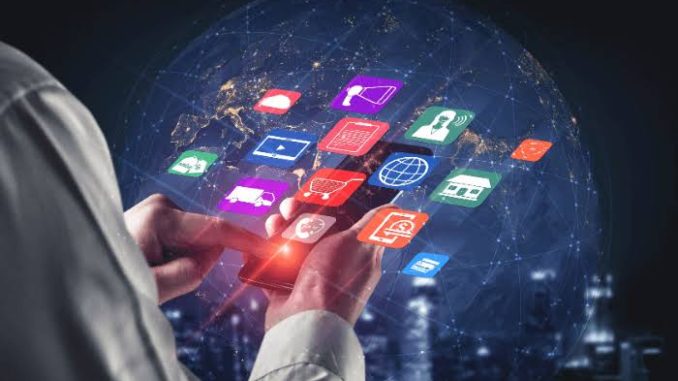
1. Smart Devices and the Internet of Things (IoT)
Smart technology has revolutionized daily life through the Internet of Things (IoT), where connected devices enhance convenience and efficiency. Smart home systems, such as voice-activated assistants (Amazon Alexa, Google Home), smart thermostats, and security systems, allow users to automate household tasks. Wearable technology, like smartwatches and fitness trackers, helps monitor health and improve personal productivity.
Impact:
-
Increases convenience through automation
-
Enhances security with smart surveillance
-
Promotes better health tracking and management
2. Artificial Intelligence and Automation
AI-driven applications, such as chatbots, virtual assistants, and recommendation systems, have transformed industries and daily interactions. From personalized shopping experiences to self-driving cars, AI enables smarter decision-making and automation of repetitive tasks. Businesses leverage AI for customer service, data analysis, and fraud detection, improving efficiency and user experience.
Impact:
-
Reduces workload and increases productivity
-
Improves personalization in entertainment and shopping
-
Enhances efficiency in business operations
3. Digital Health and Telemedicine
Technology has significantly improved healthcare accessibility through telemedicine, wearable health devices, and AI-powered diagnostics. Patients can consult doctors remotely, reducing the need for in-person visits. Smart health monitoring systems help detect early symptoms of diseases, improving preventive care.
Impact:
-
Expands healthcare access, especially in remote areas
-
Improves disease prevention and monitoring
-
Enhances doctor-patient communication and diagnosis
4. Remote Work and Digital Collaboration
The rise of remote work has been fueled by advanced collaboration tools such as Zoom, Microsoft Teams, and Slack. Cloud computing allows employees to work from anywhere, improving flexibility and productivity. AI-powered automation helps businesses manage workflows more efficiently.
Impact:
-
Increases work flexibility and employee satisfaction
-
Enhances teamwork through real-time collaboration tools
-
Reduces commuting time, benefiting work-life balance
5. E-Learning and Digital Education
Education has been transformed through online learning platforms, virtual classrooms, and AI-driven tutoring. Platforms like Coursera, Udemy, and Khan Academy provide access to quality education from anywhere in the world. Augmented reality (AR) and virtual reality (VR) enhance interactive learning experiences.
Impact:
-
Expands access to education worldwide
-
Personalizes learning based on individual progress
-
Enhances engagement through immersive experiences
6. Entertainment and Digital Media
Streaming services, gaming, and social media have reshaped how people consume content. AI-driven recommendations on platforms like Netflix, YouTube, and Spotify offer personalized experiences. Virtual reality gaming and augmented reality applications are becoming mainstream, providing new forms of entertainment.
Impact:
-
Offers unlimited access to digital content
-
Enhances interactive and immersive experiences
-
Enables creative content creation and sharing
Conclusion
Technology continues to shape and enhance everyday life by improving convenience, efficiency, and accessibility across various domains. With advancements in AI, IoT, and digital services, the future promises even greater innovations that will further integrate technology into our daily routines. However, it is essential to balance these benefits with ethical considerations and data security to ensure a safe and sustainable digital future.
Would you like me to refine any part of this article or add more insights?
Try an example below or send any message in the message box below.